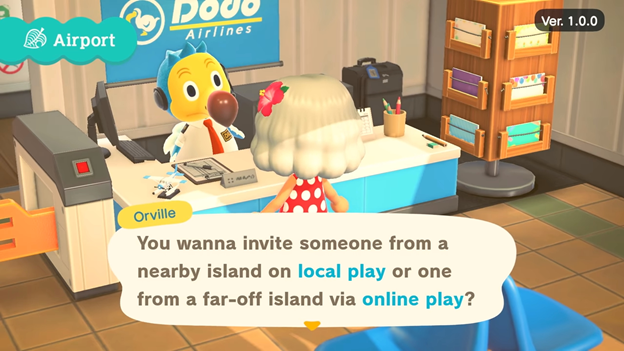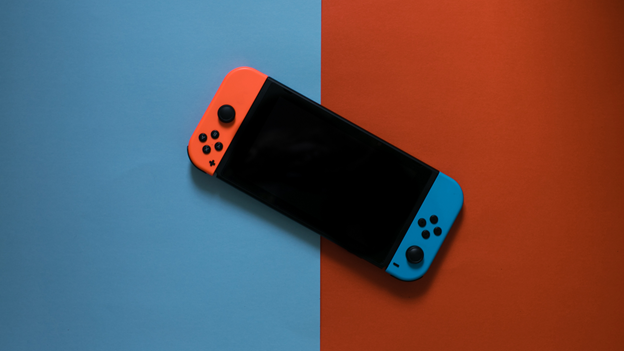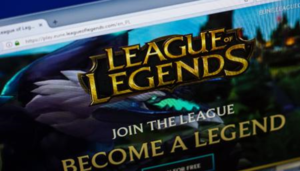Animal Crossing Addiction: A Guide To Beating Your Gaming Problem

The latest instalment of the franchise, Animal Crossing: New Horizons has been described as the “Game For The Coronavirus Moment” due to its timely release before the start of the pandemic. The game was bound to be a success regardless, but the desire for a game that provided a safe haven for millions during an anxiety-filled lockdown was what led to so many gamers developing an addiction. At the height of the game’s success, it was estimated to have 11 million monthly players with hundreds of thousands still logging in daily to play for at least a few minutes at a time.
Sadly, as lockdown restrictions have relaxed over the recent years there is still a proportion of players left with an addiction that they cannot shake. Hence we are going to show you the best ways to overcome an addiction to Animal Crossing.
Content
Addictive Features of Animal Crossing

With a brief scan of the internet, it’s not hard to find many people venting about their addiction to Animal Crossing and why they feel as if they cannot stop playing. Places like Reddit are full of users complaining about similar issues with the game and their addiction in general and for good reason. Video games tend to follow similar patterns in what makes them addictive as they are designed to make us want to keep playing. Some games have more obvious and deliberate use of addictive tactics while others use it to enhance gameplay and addiction is no fault of the developers.
Our intentions aren’t to vilify video games and their developers as it’s unfair to group all of them into the same boat. However, certain mobile games and apps are notorious for being labelled addictive for their rather malicious, microtransaction-laden design.
However, when it comes to Animal Crossing there are a few main areas that many people struggling with addiction complain about so it’s important to address these in order to get some perspective on why addicted gamers are feeling this way.
Escape From Reality
Often times video games act as a means of getting away from the stresses of everyday life. With Animal Crossing in particular it is designed to be a peaceful, simple and serene fantasy world that players can stroll through, interacting with it in a number of interesting ways. When we add the anxiety and isolation that came along with the pandemic, it’s easy to see why so many players took to their Nintendo to get away from the troubles.
There is no main objective of the game but rather it encourages you to live a simple life. Catching fish, growing trees, rebuilding and redesigning your world however you like. Running to a place where these are the only concerns in life makes it so much easier to relax. However, running excessively has its problems and can sometimes exacerbate the anxiety that we feel. Those who develop an addiction and have an unhealthy relationship with gaming depend on this means of escape. Without it, they begin to feel increased levels of anxiety as their away from their ideal coping method.
Ultimately this can result in players running back to the game creating a cycle of addiction that is sometimes difficult to break. Escapism isn’t always a bad thing. When we play in moderation it is entirely possible to experience healthy and positive feelings from gaming but as with most things excessive use is when problems start to arise.
Measurable Growth
Something that we always stress is that gaming satisfies many areas of human desires. A theory known as the Self-Determination Theory, explains that we find the motivation to do things based on three main principles. Autonomy, the power to make our own decisions. Competence, the ability to do well and master something. And finally, relatedness, to experience commonality, connection and intimacy with others. The focus for this section is going to be on competence but hopefully, this demonstrates the many facets that gaming occupies motivating people to play and hence developing an addiction.
Our desire for competence is a lot of the time what makes us want to play video games. The reason why we seek this in video games over other real-life skills is that the learning curve with gaming is specially designed to keep us hooked. Often times games bombard us with rewards that encourage us to push on to the next level. When we work on a skill in real life like learning an instrument, the only motivator is our arbitrary perception of success. There are no tangible rewards or milestones like in video games where the route to success is clearly mapped out.
With games like Animal Crossing, there is no winning. However, there are numerous features to unlock within the game which inspire players to set objectives. Players typically work methodically to accomplish different goals like collecting resources for donation to unlock tools and items to help you on your journey within the game.
Social Interaction
Community to give back and share ideas, play with. As we previously mentioned Animal Crossing: New Horizons was released at the perfect time to be considered the game of the pandemic. Video games are so often used for social interaction and this is no exception. Players have the ability to head over to the airport and fly to visit other players’ worlds where they can give you the tour and explore together. The game makes it a fun, light-hearted social experience by allowing players to shop, trade, play mini-games and even profit by selling their own wares at a friend’s store.
The game formed a wholesome community over the internet where players would share village designs, cute outfits and anything they thought would benefit their fellow gamers. In some cases, people would like the fun roleplaying aspect of catching a flight over to a friend’s world followed by the sad sombre walk back to the airport when it was time to leave.
Social interaction is one of the main contributors to video game addiction as gaming these days is rarely done alone. Socialising through video games and social communication apps online is a relatively safe and risk-free way for people to communicate. Those who are shy or suffer from social anxiety have the anonymity of the internet to fall back on and can express themselves more openly than they would in person. However, this often leads to gaming addicts neglecting real-life relationships and interactions that they should be having in order to play and connect with their friends online.
Hence a common symptom of video game addiction is social isolation and damage to relationships. But we’ll get onto this a little bit later.
Nostalgia
As is usually the case with old fan favourites, sequels that are made many years later hold a special place in the original players’ hearts. Since the game’s initial release in 2001, there have been five Animal Crossing titles. Almost a decade separates the last release from New Horizons, the latest instalment. The perfect amount of time for gamers to reflect on the hours of fun they had playing the games as a child or their younger self.
Generally, nostalgia makes us feel emotional and takes us back to a child-like state that we once lived. When a player experiences this nostalgia trip it makes them less likely to make cognitive and rational decisions when it comes to gaming. Setting aside time for your favourite childhood game becomes a no brainer and before we know it the hours begin to stack up.
Studies have shown that nostalgia increases our social connectedness and makes people more likely to purchase products that elicit this feeling. However, this investment isn’t always monetary and has a habit of being temporal as well, further contributing to the development of video game addiction. The good news is, that being aware and mindful of nostalgia’s effects can help us to make more rational decisions in the long run.
Signs & Symptoms of An Animal Crossing Addiction

To help overcome a gaming addiction it is important to understand the symptoms that may occur. Symptoms of addiction are outlined by the World Health Organisation. They explain that a person experiencing significant impairment of social, educational, occupational and other important areas of functioning over a 12 month period, due to excessive gaming is suffering from video game addiction.
Based on these findings and statistical data many diagnostic manuals used by mental health experts contain this criterion to aid in their diagnosis of the addiction. The criteria cover broad aspects of a person’s life so here are some of the more behaviour specific symptoms of video game addiction that we can see:
- Lack of energy and motivation
- Sleep problems and insomnia
- Loss of interest in other activities except for Animal Crossing
- Damaged to relationships
- Lying to conceal problematic gaming habits
- Obsessive thinking about Animal Crossing
- Decline in performance at school/work
- Neglecting important responsibilities to play Animal Crossing
- Decline in mental health and general mood
- Repetitive strain injuries
Some of these symptoms are shared with comorbid conditions such as depression, anxiety and ADHD which studies have shown can contribute to video game addiction. Treating underlying comorbid conditions usually helps improve and overcome an individual’s symptoms of addiction. Furthermore, treating symptoms of video game addiction and working towards a healthier life has shown to decrease symptoms of depression individuals may be feeling.
Any addiction increases our feelings of loneliness and hopelessness as the problematic behaviour keeps us trapped in this repetitive cycle despite wanting to quit. Hence it’s easy to see how depression can be closely linked to those suffering from an addiction.
How To Overcome an Animal Crossing Addiction

Most people suffering from video game addiction will have attempted to quit in some way, shape or form. However, they usually find that they can’t quite commit to their decision to quit or cut down. This is why we are going to explain some of the most effective proven methods to overcome your Animal Crossing addiction and claim the life you deserve.
Mindfulness Practices
Mindfulness is the practice of bringing your attention to the present moment and away from any thoughts that you might be having. Mindfulness practices are used to help build cognitive flexibility and ground ourselves in the presence of challenging or overwhelming thoughts. When we bring our mind to the present moment we shift our attention away from what might be bothering us and allow ourselves to think and act rationally rather than out of panic or any other negative thoughts we might be having.
In order to bring our attention to the present, mindfulness practices get us to focus on constants in and around us like our breathing, our senses or nature. Mindfulness is practised through meditations which have been proven to decrease the effects of addictive symptoms.
Mindfulness is usually incorporated in many different forms of video game addiction treatment based on its efficacy. It is a skill meaning the more an individual practices the better they get at it. The overall goal is, that when we are burdened by cravings, negative thoughts or temptations we can bring our attention to the present and make more healthy decisions as opposed to giving in to our addiction.
Cognitive Behavioural Therapy
This is one of the main methods of treatment delivered during in-person therapy and various other treatments. Video game addiction self-help programs include Cognitive Behavioural Therapy (CBT) in their courses based on its pragmatism and efficacy.
So what is CBT? CBT is the practice of altering negative thoughts into more positive and sustainable thinking patterns. CBT is based on the principle that the way we think, feel and interact with the world around us are all interlinked. Hence, thinking in a healthier way inspires healthier actions and emotions.
CBT is practised through various thought exercises and meditations that target the most relevant negative thoughts that we are dealing with. When overcoming an addiction there will be various negative thought loops that lead to us wanting to play video games again. With CBT we work on engaging with our thoughts and reframing them to curb the negative behaviour.
The benefits of CBT are numerous. Overcoming addiction is the main focus but alongside this, it improves self-esteem, ability to relax, encourages rational thinking and much more. CBT practices can be found on the internet and led by medical professionals. At The Mindful Gamer, we have compiled some of the most effective CBT exercises into audio lessons for our member’s benefit.
Detoxing From Video Games
Detoxing from video games simply means taking an extended break from gaming and all gaming related content. That means no Animal Crossing or any other games that we might think to substitute it with. Taking a break from video games is essential to allow our addicted brains to recover from the effects of excessive gaming. When a person plays repetitively plays video games it affects the reward centres of the brain. Gaming is a highly stimulating activity that causes the release of the neurotransmitter dopamine.
Dopamine is responsible for the feel-good sensation of a reward among other important roles in the body. However, when produced in excess thanks to gaming, our receptors start to become desensitised to it. Meaning, that we will need more dopamine to feel as satisfied as we once used to. So in order to achieve this, the brain needs to play more video games for longer. Thus creating cravings and withdrawal symptoms.
We recommend 90-days away from gaming as this is what specialists say is the adequate amount of time for sensitivity levels to return to normal. All of our members who complete a 90-day detox from video games all explain that they feel a significant improvement in their addictive symptoms and well-being across many different areas of their life; social, mood, gratitude and concentration to name a few.
Quitting outright without taking the right precautions is difficult and most of the time leads to relapse. The most effective way to detox from gaming is to accompany it with various techniques such as increasing the barrier to entry, finding alternative activities and time management methods. Most people attempt to kill all of the free time they have after cutting down on video games which is inherently unsustainable.
If you’d like to know more about video game addiction or need help cutting down, The Mindful Gamer is always here to help.








